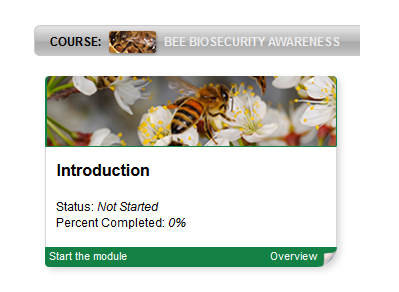
Biosecurity manual for beekeepers
The Biosecurity Manual for Beekeepers provides information for the industry and producers about biosecurity practices and honey bee pests.
The manual is for anyone who keeps honey bees in Australia, from commercial operators, to backyard enthusiasts and people starting up their first hives.
Each and every beekeeper has a role to play in protecting honey bees from established and exotic pests. Incorporating these recommended biosecurity processes into day-to-day operations is the best way to protect individual beekeepers, regional biosecurity and the Australian honey bee industry as a whole.

Australian Honey Bee Industry Biosecurity Code of Practice
The Australian Honey Bee Industry Biosecurity Code of Practice (the Code) has been developed in consultation with beekeepers and governments to provide a framework for Australian beekeepers to use best-practice biosecurity measures.
The Code has been developed to incorporate fundamental biosecurity principles into the practices of all Australian beekeepers.
Training and planning
Reducing exposure of bees to pests and diseases
Controlling pests and diseases
Controlling the spread of undetected disease in an apiary
Keeping accurate records
Hive and equipment maintenance
Some sections of the Code are already mandatory under existing state and territory legislations. Some parts of the Code apply to all beekeepers; others apply only to beekeepers with 50 or more hives.

Biosecurity Online Training (BOLT) module
The Biosecurity for Beekeepers online training is now free for all Australian beekeepers.
The honey bee biosecurity training module contains information that is present in the biosecurity manual in an online format and questionnaire. Its aim is to maximise the early detection of exotic bee pests (specifically Varroa mites), and minimise the spread of potential pest incursions though improved understanding of the importance of biosecurity, best management practices and basic awareness of key pest threats.
For more information about BOLT, or to complete the honey bee biosecurity module click here.

Apiary Sites on Public Lands - A NSWAA Position Paper
The NSW Apiarists' Association has been liaising with the Forestry Corporation to put in place a state wide beekeeping policy similar to that that has been in place with the National Parks and Wildlife Service for a numbers of years.
This position paper was created to highlight the importance of the apiary industry and the necessity for it to have access to public lands. It is hoped that this will provide government departments and interested stakeholders with a thorough understanding of these issues.



